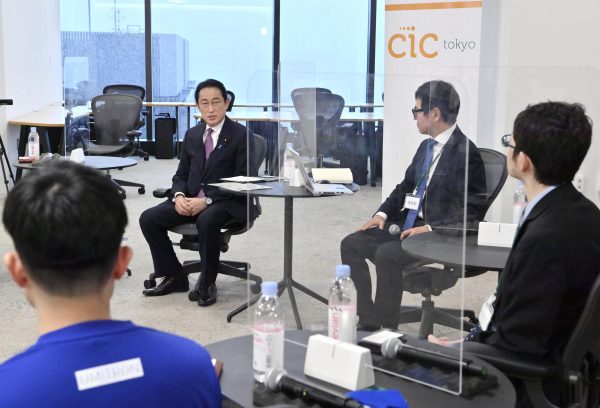When an advisory committee of bureaucrats, businesspeople and academics came up with a superb analysis of the hurdles to entrepreneurship, the Prime Minister’s Office insisted instead that they omit any specific remedies until an indeterminate future. This was part of Kishida’s general retreat on his economic program.
With a strong victory in the July 2022 Upper House election, will Kishida summon up the courage to capitalise on new political opportunities? He should consider that many corporate giants which were previously worried that entrepreneurs would disrupt incumbent companies have begun to realise that they need them.
At Toyota, the number of software vendors now exceeds traditional parts makers at its top 5000 suppliers. Most of these software companies are newer firms that refuse to become a Toyota satellite. The giant automaker must accept their terms because it lacks the required skills in software, which now accounts for 10 per cent of a car’s value.
Such cases drove the conservative big business federation Keidanren to issue an important policy paper on 11 March 2022. ‘Start-up Breakthrough Vision 10X 10X’ calls for a tenfold increase in venture capital (VC) funding for start-ups and the creation of 100,000 new dynamic companies over the next five years.
There are many practical measures available to Kishida that could provide a significant economic payoff in increased entrepreneurship at a relatively low cost to the budget and little social–political disruption. Showing success via such measures would build support for more difficult reforms of the labour system, banking, education and anti-competition regulations that protect inefficient companies.
Tokyo needs to think beyond Silicon Valley-type firms. There are only 2000 high-tech firms in Silicon Valley compared to the more than 50,000 high-growth enterprises (HGEs) in the entire United States. The comparable numbers are 16,000 in South Korea, 13,000 in the UK and 10,000 in France. Only a fraction is in high-tech and few get VC money. But their impact can be enormous.
During the 1980s and 1990s, US firms that were less than five years old supplied a stunning 60 per cent of the growth in factory output per worker. By contrast, OECD data shows Japan’s small- and medium-sized enterprises (SMEs) are the oldest among OECD countries with the lowest growth rate.
The single biggest obstacle in Japan is the dearth of financing. Once a banker, Kishida knows how much Japanese banks resist lending to young companies, even ones with a 10-year track record and especially those with women founders. This makes it even more important for Japan to nurture business ’angels’.
Angels fund start-ups that are not suitable for VC and are too young for bank loans. In 2019, angels in the US invested US$24 billion in 64,000 companies, an average of US$376,000 per company. That equates to 20 times the number of VC-funded superstars.
In other countries, well-designed tax incentives have created a boom in angel investment. But Japan’s tax break is tiny. An angel’s total investment in all companies under three years old can only receive a maximum income tax deduction of 8 million yen (US$61,000). In the United Kingdom, angels can deduct 30 per cent of their investments up to £1 million (US$1.25 million) and twice as much for ‘knowledge-intensive’ companies.
When the Japanese Ministry of Economy, Trade and Industry tried to improve the tax break, the Ministry of Finance’s Tax Bureau blocked it. This is short-sighted thinking because having more start-ups will mean better GDP growth and more tax revenue.
It is encouraging that the Startup Parliamentary League — a Liberal Democratic Party group created to push for Kishida’s program — called for improved tax breaks for angel investors. The question is whether Kishida will overrule the Ministry of Finance.
New companies have trouble finding customers. This would be improved by helping them to sell to national and local governments — who spend up to 16 per cent of Japan’s GDP. The government has long favoured older SMEs with procurement preferences but finally added a provision for companies under ten years old in 2015.
Despite this, purchases from new companies remain trivial at just 0.8 per cent of total national procurement in 2021. A more meaningful commitment would not only give start-ups more revenue but also help them get bank loans and more sales to private firms.
All rich countries subsidise research and development, which is vital for high-growth start-ups. But only 8 per cent of Japan’s aid goes to companies with fewer than 250 employees, the lowest share in the OECD.
The Kishida team wants the enormous Government Pension Investment Fund to invest more in VC funding. That would help significantly, as long as it does not invest on its own but rather through independent (not corporate) VC funds, foreign or domestic.
These are just a few of many feasible steps. Coming up with them is not difficult. What is hard is mustering the political will to implement them.
Richard Katz is Senior Fellow at the Carnegie Council for Ethics in International Affairs.
This article is digested from Japan Economy Watch.

